You might want to make sure you’ve gone to the toilet and settled yourself in for a nice, long read because this one spiraled out of control.
This post has been in the works for a long time and the more I worked on it, and the longer it took to write, the more I realized I couldn’t possibly name and give a description for every single holiday without quickly losing your interest (and mine). So, I’m going to write about some of the holidays that schools and offices are closed for or, that the stores go wild selling stuff for or, that gets its own parade or, that I find particularly interesting. (Side note: I’ve now finished and you’re definitely going to read about all of them.)
Singapore is what one person described to me as “the melting pot of Southeast Asia.” People from all over Asia have settled here over hundreds of years and I honestly struggle to identify who a true Singaporean is, much like it might be hard for a person to identify an American just by looking at them (unless, of course, said person is wearing an American flag t-shirt with a bald eagle on their shoulder and carrying an AK-47). As a result of this melting pot-ness, Singapore was born from the desire for racial tolerance and equity which has led to it being one of the most religiously diverse countries in the world. Imagine that. A country with religious tolerance. Is it perfect? No. But they’re at least trying.
I’ll start at the beginning of the year with a holiday most of us are familiar with and that is New Year. This isn’t a religious holiday though it used to be for me before I had children. New Year’s is pretty much the same here as it is around the world. Restaurants are packed, everywhere are parties, and fireworks are set off near the iconic Marina Bay Sands. The biggest difference here is you can go out to the elaborate fireworks display and be home by 12:30 which Marcus did by himself because the rest of us were in bed, sick.


For the current year, 2024, the next holiday that is celebrated is Thaipusam which is a Tamil Hindu holiday commemorating the victory of good over evil (this is the most basic description I can give without over complicating things). During this festival, Tamil Hindus begin a 4km trek from Sri Srinivasa Perumal Temple in Little India to Sri Thendayuthapani Temple. Along the route they carry “kavadis” which are beautifully decorated religious shrines that are attached to the person by self-mortification. It’s absolutely fascinating and my girlfriend and I walked almost the entire length of the route. What I found most inspiring was how celebratory they were the closer they got to the end.


The next holiday for 2024 is Lunar New Year (or Chinese New Year) which I’ve become a big fan of over the past two years because it evokes feelings of Christmas more than Christmas in Singapore does. Everywhere is beautifully decorated and the crowds are out in force as they buy special treats such as pineapple tarts, bak kwa (dried meats), new clothes, and prepare for a family gathering. Traditional Lunar New Year songs play over the loudspeakers, the drums of lion dances are everywhere, and there’s a general feeling of excitement mingled with the stress of a holiday. The best way I can describe this holiday to Americans is that it is similar to the U.S Thanksgiving, when we stress clean our homes, cook tons of food, and families come together (for better or for worse).
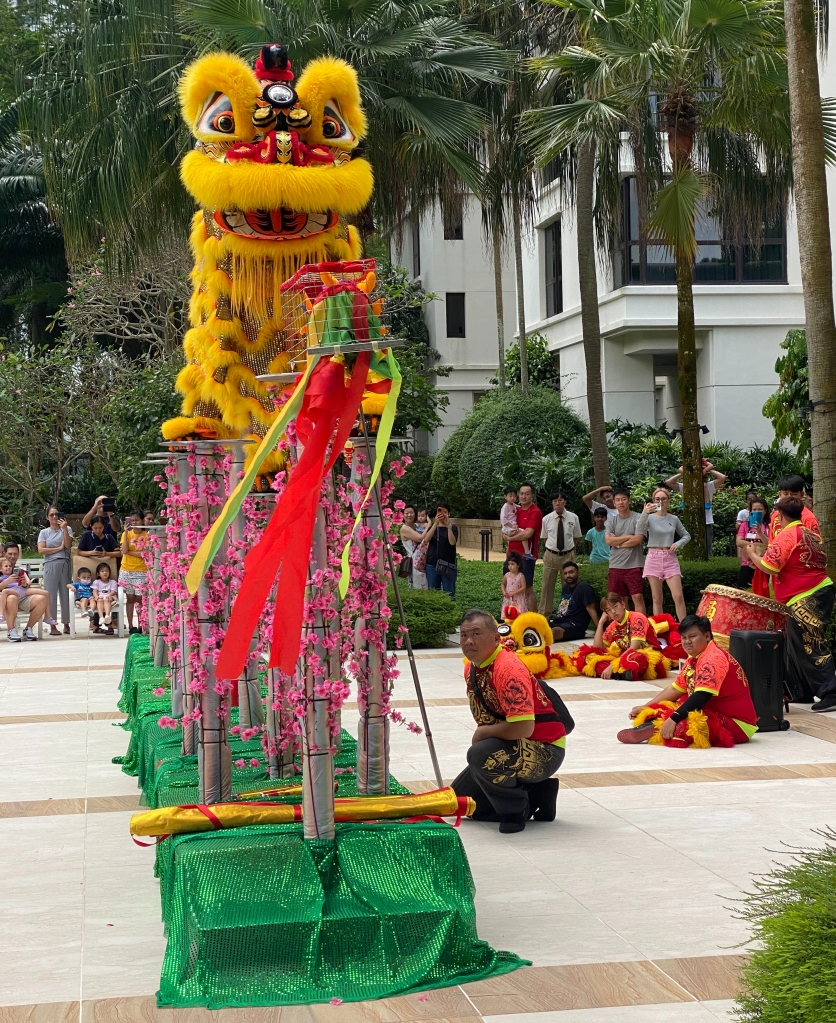


Good Friday is observed with many offices being closed and schools having a day off. There are a few places that carry Easter basket goodies but otherwise, it seems to be a blink and you miss it holiday. Fun fact #1: 18.9% of Singaporeans are Christian which I find ironic because I have been prayed over more times in Singapore than anywhere else. Apparently, I have the look of someone who needs saving.
The start of the Muslim holiday of Ramadan happened to occur at the same time as Easter this year. This holiday culminates in Hari Raya Puasa (called such in Singapore). On this day, the month long fast has come to an end and families gather, eat good food, and ask each other for forgiveness. In some of the more predominantly Islamic neighborhoods there are bazars set-up with food vendors to break the fast at sunset. The family and I did half a day of fasting before attending an event and I have to say, to abstain from food is one thing but to not drink water in a climate such as Singapore’s, even for just a few hours, was absolute torture and it made me worry for those who work in the heat. Fun fact #2: 15.6% of Singaporeans are Muslim.
Vesak Day is the most important Buddhist holiday as it celebrates the birth, enlightenment, and passing of Gautama Buddha. This year, Vesak Day is celebrated in May. Again, it’s a public holiday with offices and schools closing for the day. This holiday is not an “in your face celebration” and the only real indication of it taking place (aside from my children having a day off on a Wednesday) were the banners and areas being set-up around HDBs for the devotees to attend services. From my understanding, it is mostly a day when Buddhists attend temple, practice good deeds such as feeding and clothing the destitute and listen to talks given by monks. Fun fact #3: 31% of Singaporeans are Buddhist.

Hari Raya Haji is a Muslim holiday celebrating the end of hajj, the annual pilgrimage to Mecca. It is the Festival of Sacrifice and takes place 70 days after Ramadan. During this festival, cows, sheep, and goats are sacrificed, their meat processed and then delivered to less fortunate families. This is also a day of celebration with families gathering around food and festivals taking place around the city. Fun fact #4: The Call to Prayer is regulated (as are all things in Singapore) and mosques must have attenuators on their loudspeakers so that, unless you are quite close-by, you will not hear the Call to Prayer all over the city as you might in other predominately Islamic countries.
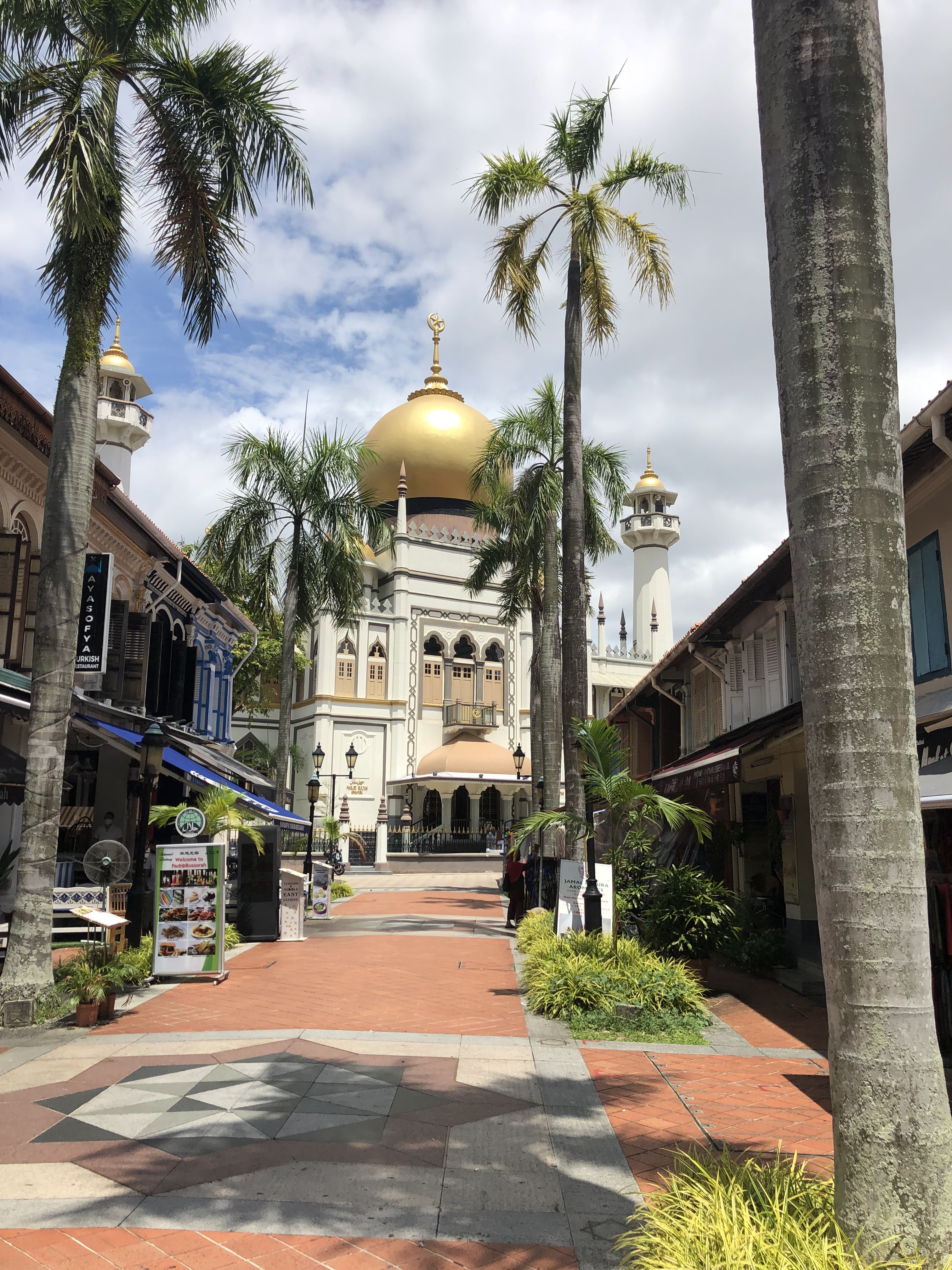

The Mid-Autumn Festival is actually not a day that I think any offices or schools are closed but it’s a fun one to mention. This is the Chinese Harvest Festival that celebrates the end of the harvest season which coincides with the full moon, which is also a celebration of the Moon Goddess, Chang’e. Lanterns are lit to light the path towards prosperity and good fortune and mooncakes are sold everywhere. Mooncakes are a traditional pastry that are typically only eaten during this festival and come in a variety of flavors though the most traditional are made with sweet-bean, egg yolk, and lotus-seed paste. Nowadays, you can find a mooncake made to any taste. To be honest, I haven’t found a mooncake I really like but that doesn’t mean I’ll stop trying.

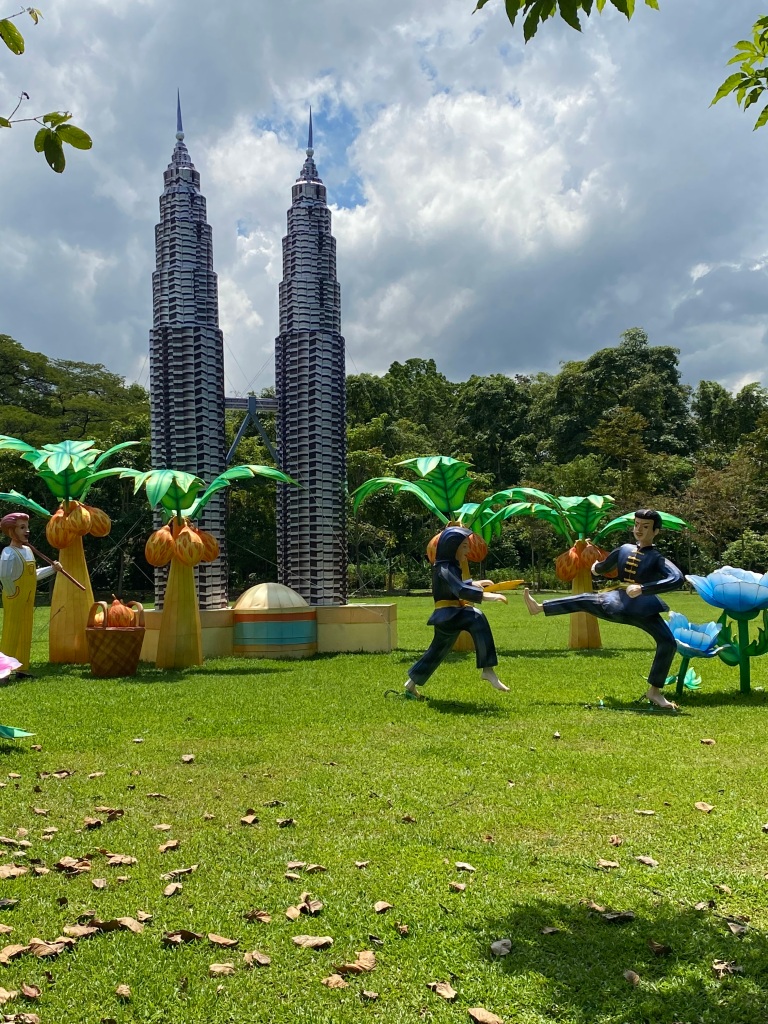
Deepavali is the Hindu festival of light over dark. It has similarities with many other festivals in that it is a celebration of light over darkness, and it is a time of homecoming. It is also when homes are cleaned, renovated, and decorated with oil lamps and rangolis, Hindus wear their nicest clothes and gather for feasts. I am more than a little bummed that I never got to partake in a traditional Deepavali party before leaving Singapore; there is nothing that would have brought me greater joy than having a reason to wear a beautiful chagra choli. Fun fact #5: 5% of Singaporeans are Hindu.



Christmas is kind of a funny thing here and not one I will miss greatly though I can’t put my finger on exactly what’s missing (aside from colder temperatures). There are decorations and Christmas music is played in stores but, it’s extremely commercialized, the decorations are somewhat tacky, and over all there’s a contrived feeling to it all. It’s enough for this heathen to feel somewhat put-out; I can’t imagine how the “Put Christ back in Christmas” folks might feel. Fun fact #6: In June, Singapore puts up a small section of their Christmas lights on Orchard Road. It’s unclear as to why they do this, but I assume it’s because they like to do practice runs of everything.

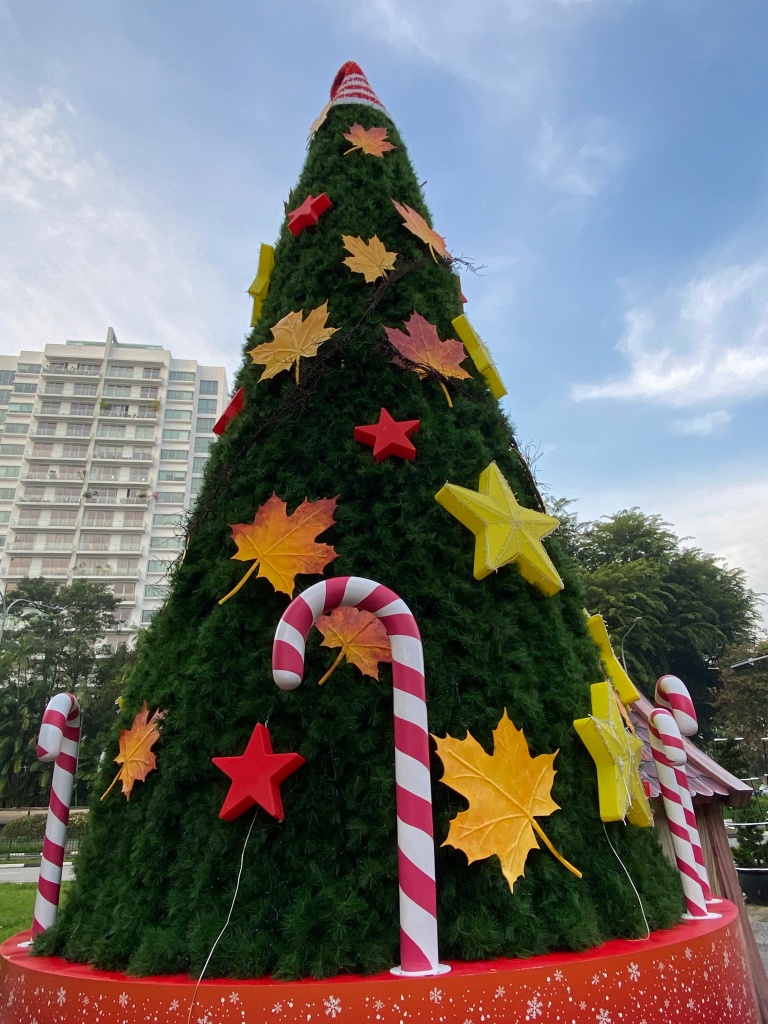
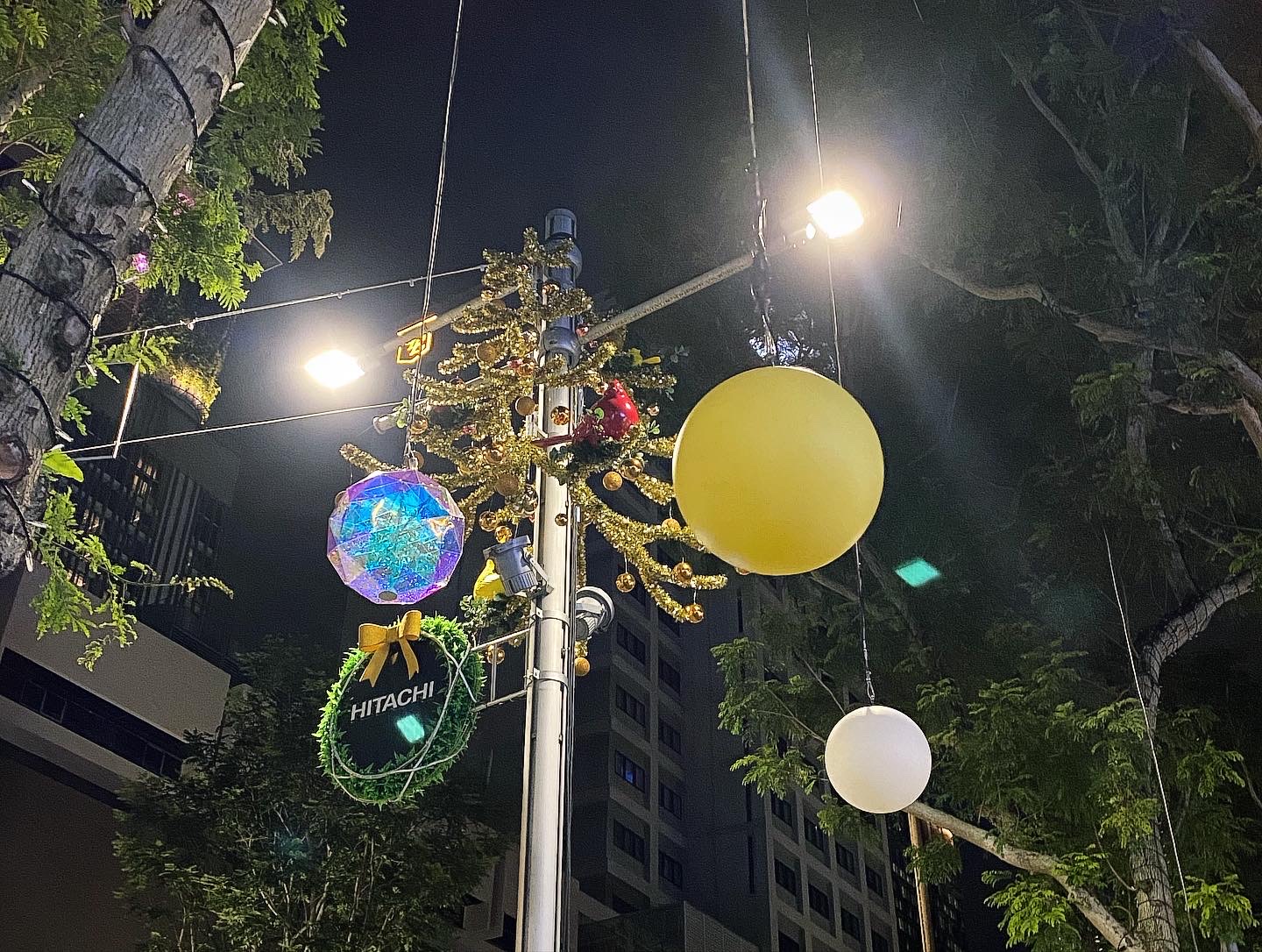
Along with all of these holidays there are two other public holidays which are National Day (Singapore’s Independence Day which is 9 August) and Labour Day (the same as U.S. though theirs is on 1 May rather than in September). Again, I completely oversimplified these holidays for brevity’s sake though I’m over 1500 words by this point so, brevity eludes me. If you do celebrate any of the holidays mentioned above, please share what they mean to you and their importance.

Leave a comment